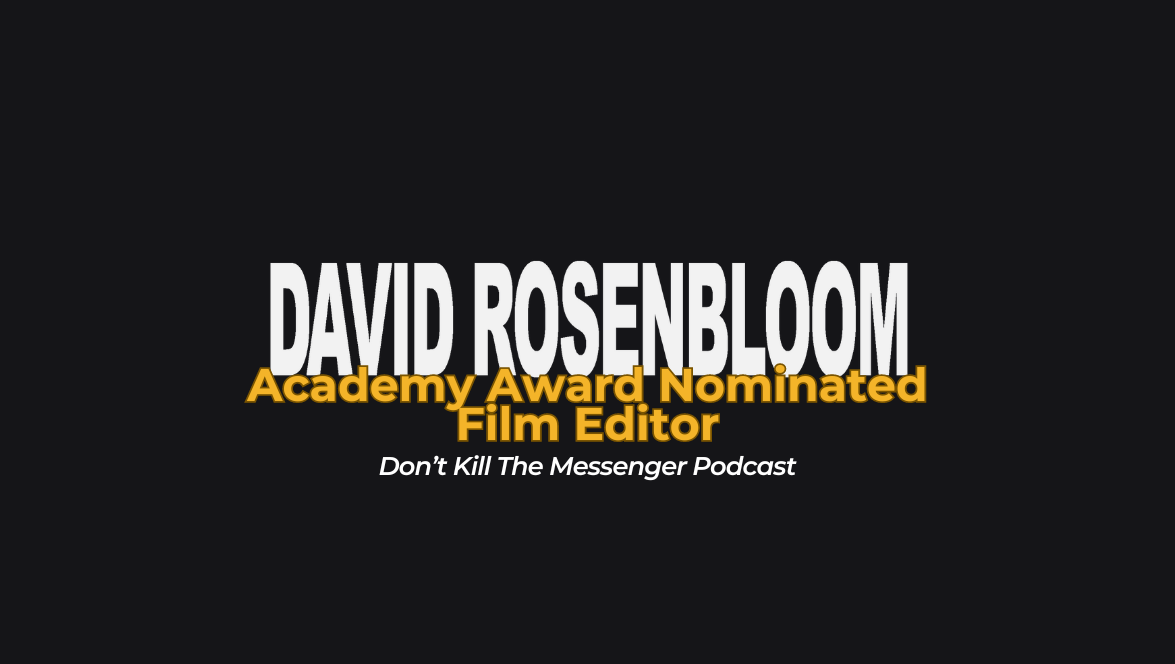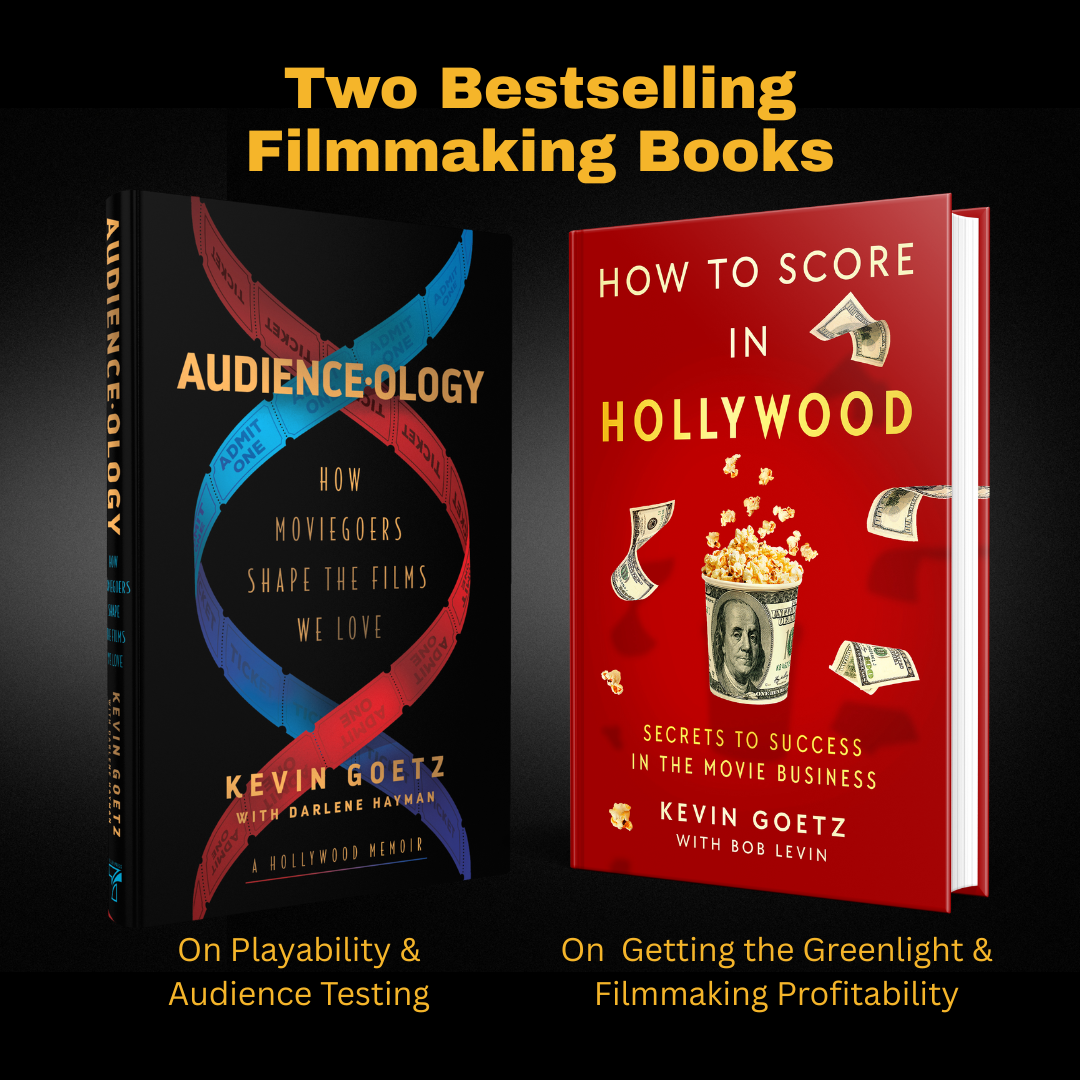
David Rosenbloom has had an incredible career, working on critically acclaimed and award-winning films like The Insider, Rudy, The Black Mass, All Good Things, and the recently released Plane. In this podcast, we’ll delve into David’s background, his process for editing, and his experience with audience screen testing. We’ll also hear some behind-the-scenes stories and insights that only a seasoned film editor like David can provide. Whether you’re a film buff, an aspiring editor, or just someone who appreciates the art of filmmaking, this podcast is a must-listen!
An important and close relationship
Kevin discusses the important relationship between the film’s editor and the person who is running the test screening. Kevin calls it the closest relationship, and David agrees as they talk about the value of the information gained during an audience test screening.
So now you just hope that the audience is seeing the movie the way I have expected them to see it as I’m working on it. Because, as editors, we pretty much are the first audience. And so, we want them to experience it the way that we experience it when we first watch it.
– David Rosenbloom on audience test screenings
Defining good editing
David discusses the differences between good editing and bad editing. He compares editing to the music in a film and knowing when to make a cut or when to let a shot go on longer. Kevin asks about how to differentiate between good and bad editing, which David calls the hardest thing to judge..
Some people feel that more editing is better editing; you know, the quicker the cut, the more work is being put into it. That’s not necessarily the case, right? It’s just as difficult to decide where not to cut as it is to decide where to cut and how you let a shot go on longer.
– David on editing
How an audience reaction led to a big change
Kevin asks David about the biggest change that he has made to a film based on the audience’s reaction at a test screening. David brings up the film Out of the Furnace, where the lead initially dies at the end of the movie. The two discuss how the audience’s reaction led to David recutting the film to save the character.
I think it was the way we ended that movie because he originally gets killed. Christian Bale dies at the end of the movie. And we discovered that that wasn’t really the journey the audience wanted to go on.
How audience research led to a major change in
Out of the Furnace
Early mentors and TV work on Hill Street Blues
David and Kevin discuss David’s early years as an editor on television shows. The two talk about the evolution of editing technology and how a 24-year-old David was given the opportunity to direct an episode of Hill Street Blues.
The alchemy of moviemaking
David talks about the moviemaking process and the important relationship between the film’s editor and the director. They discuss David’s experience in editing sports movies like the audience-favorite Rudy.
…it speaks to what a living, breathing thing a movie is. There is an alchemy. You talk about alchemy in your book. There are things that you can’t anticipate when you’re writing how they’re going to end up when it’s shot because you now have actors coming in and breathing life into these characters. And then when you go to the editing room, you’re putting images together, and we’re making subtle changes that nobody would ever know.
– David on the editing process
Applause for editing
Together, David and Kevin explore what makes great editing and how it can elevate a film to new heights. David shares his personal experience of watching All That Jazz for the first time and the moment he realized that editing could inspire applause. He also discusses the distinction between good editing and the use of fancy techniques. The pair delve into the nuances and subtleties of editing and how it can impact the final product.
Pace is a 4-letter word
David and Kevin talk about the intricacies of editing and why David hates the word “pace” in audience feedback. Kevin talks about the film’s length being a director’s issue while the pace is more of an editor’s issue. Audience engagement is discussed as well as when a film is too fast, too slow, or just right.
Fast pace is usually a proxy for confusion, and slow pace is often a proxy for boredom. Lack of engagement. Lack of engagement.
– Kevin Goetz on pace and audience testing
Join Kevin and his guest David Rosenbloom as they discuss David’s prolific career, the nuances and subtleties of editing, and how editing can shape the audience experience. Check out the fascinating discussion, and enjoy some insider stories on Kevin’s podcast, Don’t Kill the Messenger!
Don’t Kill the Messenger, hosted by movie and entertainment research expert Kevin Goetz, brings his book Audienceology to life. This bi-monthly podcast takes a peek behind the filmmaking curtain as Kevin talks with famous filmmakers, studio executives, stars, and other creatives about movies, filmmaking, audience test screenings, and much more.
For more information about David Rosenbloom:
For more information about Kevin Goetz:
Website: www.KevinGoetz360.com
Audienceology Book: https://www.simonandschuster.com/books/Audience-ology/Kevin-Goetz/9781982186678
Facebook, Twitter, Instagram: @KevinGoetz360
Linked In @Kevin Goetz
Screen Engine/ASI Website: www.ScreenEngineASI.com






